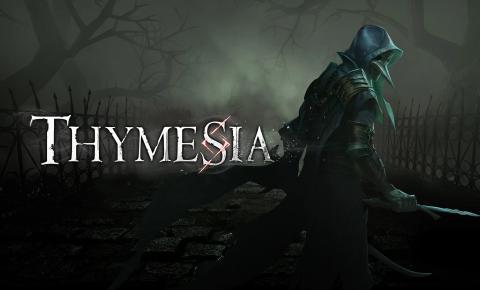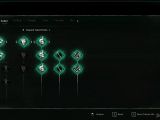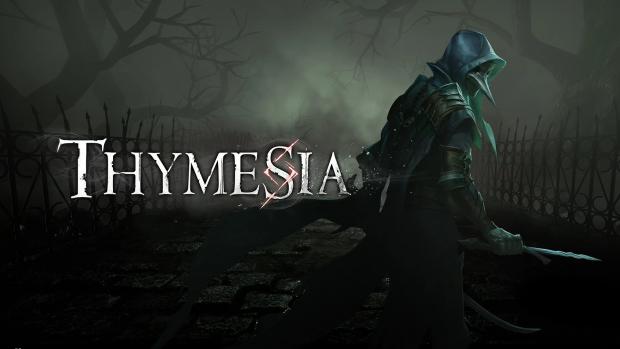The Kingdom of Hermes feels more like a string of small arenas where you fight almost the same enemies until you reach the boss at the end of each. Thymesia clearly draws inspiration from games like Bloodborne, Sekiro and Dark Souls, although most of its combat is based on the first two.
Just like many other soulsborne game, Thymesia ports some of the mechanics that FromSoftware came up with such as healing and upgrade system. The game developed by OverBorder Studios is closer to Sekiro than any other FromSoftware game, so expect fast-paced combat that involves quick attacks, as well as timely parries and dodges.
Set in a world devoured by a strange plague, Thymesia brings a couple of innovations of its own that make it stand out from other soulsborne games. Corvus, the protagonist of the game, has a rather large arsenal at his disposal. The basic weapon, the sword, is what you’ll be using the most, followed by a raven’s claw, and then a wide range of plague weapons that can be stolen from enemies.
The way enemies are designed makes Thymesia rather unique among the throng of soulslike or soulsborne games. Each has two health bars that you need to deplete before applying the killing blow, but that’s not what makes it unique.
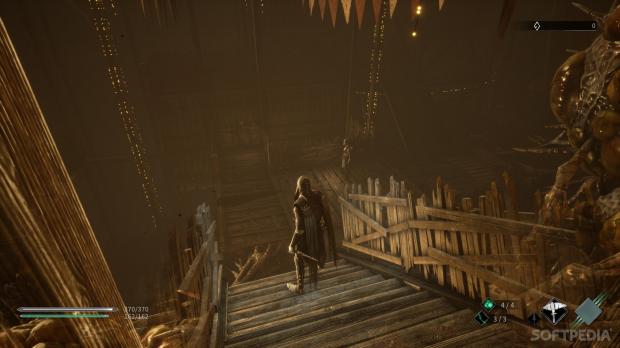


The white health bar can only be depleted with regular attacks, while the green health bar can only be depleted using the claw. The white health bar regenerates after a short while, so a pretty aggressive style is encouraged over a defensive one based on parries and counterattacks.
The strategy is pretty simple: use your sword to inflict so-called “wounds” upon the enemy, and then hit them with the claw to take a big chunk of their green health bar that won’t regenerate. You’ll have to time your claw attacks though because it takes a while to recharge, but the more wounds the enemy has, the more damage it will take when hit with the claw.
The third mechanic the folks behind Thymesia came up with involves plague weapons that you can steal from opponents. Some enemies are weak to certain types of attacks, so having one of the plague weapons that are powerful against these enemies can change the outcome of a battle. The catch is that you can only use it for one attack, so you need to come up with a strategy that will allow you to make the most out of it.
Some plague weapons are so powerful that you can make entire builds around them. To become even more powerful when using these plague weapons, you can use skill shards that some enemies drop to train in a particular weapon. It’s a strange concept that seems to work very well in this case, although you need to be aware of how these mechanics function and find the correct synergies.
Apart from using skill shards to train in any weapon you’d like, you’ll gain levels as you kill enemies, which will award you skill points that can be used to enhance your combat abilities. There’s also another type of currency in the game that drops from enemies, memory shards, which can be used to upgrade not just your health, but also your regular and claw attacks.
The flow of the combat feels very smooth when you execute all your moves correctly. Regular enemies don’t really pose a threat for Corvus, but most of the bosses require learning their attack patterns before you can actually kill them.
Thymesia is pretty lackluster when it comes to story, although I’m pretty sure soulslike fans won’t care much about that. The developers are playing the “lost memory” card in this case, a leitmotiv often present in many JRPG.
Every so often you’ll find notes throughout the levels that contain some lore that doesn’t really shed light on what’s really happening. Add to that the rather poor visuals and bland audio bits and you have a pretty mediocre art direction.
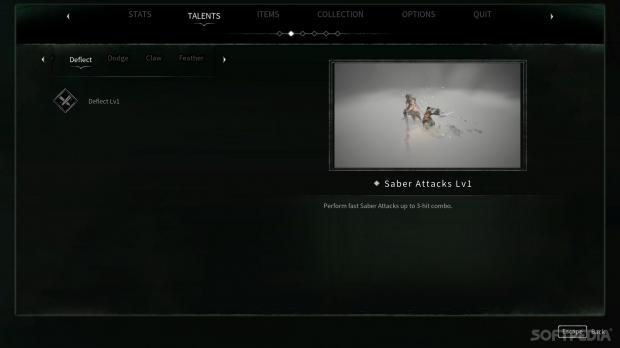


The Good
- Fast-paced, tight combat
- Some unique mechanics
- Well-designed bosses
The Bad
- Very thin on the story
- It can be frustratingly difficult at times
- Mediocre art style and audio
- Lacks enemy variety
Conclusion
Despite the fact that levels are rather small, there is no fast travel between “bonfires,” so if you’re killed, you’ll have to start again from the last checkpoint. The problem is that these are rather far apart from each other.
If you’re a veteran of soulslike games, you’ll find Thymesia enjoyable, yet frustrating at times due to some unfair mechanics. Unfortunately, this is not a welcoming game for newcomers to the genre, so you’ll want to skip this one if you’re finding games like Sekiro and Bloodborne too difficult.
Review key provided by the publisher
 14 DAY TRIAL //
14 DAY TRIAL // 